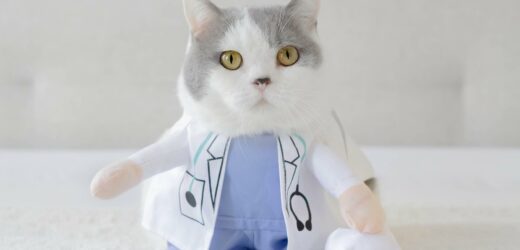More On:
cats
House paw-ty: Police called to noise complaint find cat home alone blasting music
Woman accused of shooting neighbor’s cat with crossbow
Feline okay? The app that tells you if your cat’s happy
Proposal offers $1K to people who adopt pet from NYC shelters
They say cats are people, too — which may be true in deeper ways than previously thought.
A prominent feline geneticist has published a new paper in the journal Trends in Genetics, urging researchers to consider cats as subjects.
“Using cats in research is really overlooked, since people don’t realize the advantages,” said Leslie Lyons, of the Department of Veterinary Medicine and Surgery at the University of Missouri, in a statement tied to her new report.
Lyons argues that cats have the potential to be practical models for human genetics, compared to the more frequently studied mice or monkeys, thanks to shared characteristics in our DNA’s “dark matter.”
“The dog or mouse genome have rearranged chromosomes that are quite different than humans,” Lyons explained. “The domestic cat has genes that are about the same size as humans, as well as a genome that, like humans, is very organized and conserved.”
Dark matter refers to the estimated 95% of our DNA that, in fact, is nearly identical throughout the animal kingdom. While long presumed to hold superfluous genetic information with no clear function, recent studies in mice have led scientists to believe that DNA dark matter holds key factors to our development.
Animals tests have shown that changes to the genome’s ubiquitous dark matter may not necessarily render the animal biologically doomed, but could be a root cause of some diseases that appear later in life, such as Alzheimer’s and blood cancer.
Similar to humans, cats are already known to harbor some genetic diseases related to the dysfunction of their genetic dark matter.
“As we discover that perhaps animals have more similar spacing between genes and the genes are in the same order, maybe that will help us to decipher what’s going on with humans,” Lyons said.
She also points out that monkey test subjects can be “on the expensive side, but a cat’s affordability and docile nature” make them ideal for a lab setting.
Advancements in cloning have made it possible to more cheaply clone and generate transgenic cats, meaning cat born with genes previously modified in a surrogate’s embryo. In 2001, scientists created CopyCat, or Cc, the first cat clone that also defied early genetic principles by eschewing the presumed dominant genes for fur color.
Despite having a calico cell donor with black, white and orange fur, Cc’s orange was missing. The results were an early indicator that there’s much more to know about the function of genes.
Cats may also help scientists develop better therapies for genetic diseases, such as polycystic kidney disease, which also afflicts humans. If researchers can identify why some cat breeds are prone to the illness, that information could be used to understand how to treat it in humans. (Again, because it’s easier to find lab cats than humans.)
Vets could be contributing to this effort already. “If you and your cat walk in the vet’s door and there is not a trauma, there is not a feeding problem, there might be a genetic problem with the cat,” said Lyons.
“Vets could sequence the genes and potentially more quickly find the cause of what’s going on and then develop a treatment that is more appropriate than just treating the symptoms.”
Lyons believes that cats may get us closer to understanding human disease than mice and monkeys have yielded as yet — not to mention cats are also currently under-studied in the world of veterinary medicine.
“We can provide a more tailored health care program for our pets, and more funding would put all the different pieces into place,” she said.
Share this article:
Source: Read Full Article


